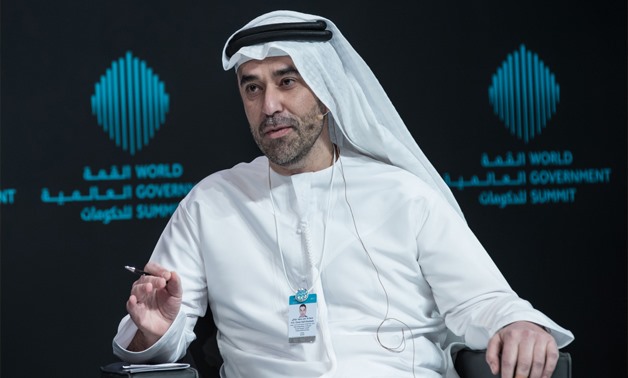
UAE ambassador to Moscow, Omar Ghobash – Emirates News Agency photo
CAIRO – 28 June 2017: With the deadline for Qatar to comply with the demands of its neighbor Gulf and Arab states approaching, the coalition states are threatening to make the current economic and political sanctions imposed on Qatar permanent.
Saudi Arabia, United Arab Emirates, Bahrain and Egypt have demanded that Qatar stop funding terrorism, cut ties with Iran and shut down the state-funded Al Jazeera broadcasting network, otherwise it will face permanent political isolation.
In an interview conducted by the BBC with Omar Ghobash, the U.A.E. ambassador to Moscow, he said "Qatar is not responding positively to what we have sent. I think the whole idea would be to ultimately, simply disengage from Qatar."
Ghobash, who is also a U.A.E. government spokesperson, did not rule out expelling Qatar from the Gulf Cooperation Council (GCC), saying “Not immediately, but that is certainly under discussion.”
In regards to claims that the current rift could escalate into a military conflict, he said "Not from our side."
"These are relatives and friends. They have a leadership that has decided to undermine us. We'll cut all our ties with Qatar, economic, political and even social as a result of the flight bans."
The Emirati official asserted that Qatar must comply with Gulf demands by July 3, or “We'd no longer be interested in bringing Qatar back into the Gulf and the Arab fold."
Ghobash underlined the risk of driving Qatar into the arms of Iran.
"Unfortunately Qatar has been in the arms of Iran and many Sunni extremist groups for a long time," he said. "So the idea of it falling into Iran's lap is something we accept [as a risk] but at least it will provide clarity to the region and we'll know who our friends and enemies are.”
He concluded that this conflict represents a “turning point” for the Gulf societies.
“This is a principled stand that we are taking against very powerful negative narratives of Islam being funded by countries like Qatar,” he said.
Qatar’s relations with several Arab states have been strained since May 24 over a leaked statement attributed to Qatari Emir Sheikh Tamim bin Hamad, criticizing Gulf foreign policy with Iran and describing it as “unwise.”
The Qatari crisis escalated when Egypt and a coalition of GCC Arab states announced a coordinated diplomatic break with Qatar. The Arab countries accused the peninsular country of funding Islamist terrorism, in part, via the Doha-based Al Jazeera satellite channel.
Comments
Leave a Comment